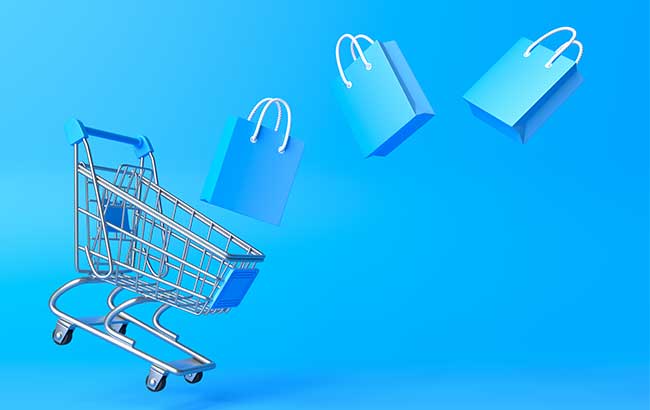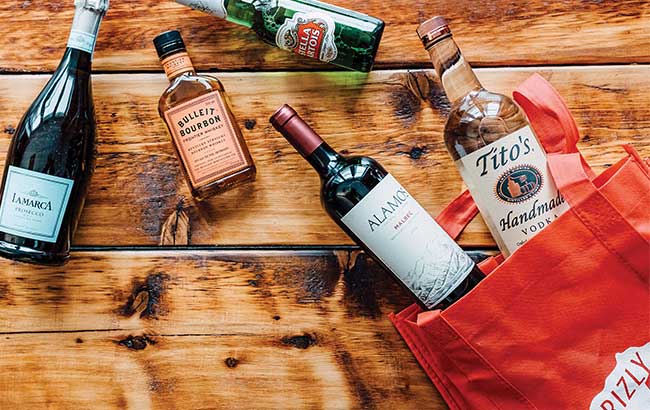How spirits producers are pushing for DTC shipping
Disparities between US states when it comes to direct-to-consumer spirits shipping are causing problems for the industry. But, as Melita Kiely reports, producers are teaming up to fight the situation.

While 46 US states and Washington DC allow direct-to-consumer (DTC) shipping of wine, only nine afford the same benefit to spirits. Some relief was offered at the height of the Covid-19 pandemic, as seven additional states sanctioned temporary measures to enable distillers to directly ship or deliver spirits in state.
However, of those seven – including Colorado, Connecticut, Maryland and Virginia – two sets of provisional legislation have expired: Montana and New York. Meanwhile, California introduced a bill to permanently allow DTC shipping.
Spirits producers are eager to see the rest of the US follow California’s lead – particularly at a time when DTC shipping has proven to be a lifeline for producers.
Craft distillers in the US saw revenue plummet by 55% in 2020, according to a survey by the American Distilling Institute (ADI), with 36% reporting a drop of more than 25%. In January this year, the trade body sought feedback from 269 distilleries in 42 states and the District of Columbia. The results showed 36% of reported revenues were down by more than a quarter – attributed to the fall in on-site revenue after tasting rooms were shuttered last year. Those who were able to use DTC shipping said the revenue stream generated an average of 39% of their total sales.
“There is great consumer demand for DTC shipping,” said Chris Swonger, president of the Distilled Spirits Council of the US (Discus).
“And on behalf of all of our members, we know that DTC shipping can be a great building block and an on-ramp to support the three-tier system, meet consumer needs and wants as the marketplace gravitates towards e-commerce, and provide a strong economic lifeline to distilleries all around the country.”
Now, three major trade bodies – ADI, Discus and the American Craft Spirits Association (ACSA) – are on a mission to persuade the US government to pass DTC shipping laws. The trio have agreed a strategic partnership to campaign for permanent legislative changes for DTC shipping. The trade bodies strongly believe this progression is imperative to support the continued growth of the craft distilling movement in the US.

Margie Lehrman, chief executive of the ACSA, noted how drastically the craft distilling scene in the US has changed in recent years.
In 2010, there were fewer than 100 operating craft distilleries. “Fast-forward to where we are right now, there are over 2,250 craft producers in the United States having to adhere to multiple regulatory schemes, oftentimes not only in their state, but in their county,” Lehrman explained.
She cut to the chase: “One of our strongest arguments [for DTC shipping for spirits] is parity. Spirits should not be treated any differently from others that are in the alcohol beverage sector,” she insisted.
Erik Owens, ADI president, echoed Lehrman’s stance. “If you look at beer and you look at wine, both of those industries have had massive growth, but spirits have this hurdle where they don’t even have the same rights, the same regulations as everyone else, and not being able to ship directly to the consumer cuts them off from customers,” he added.
Unfair competition
Swonger said wine campaigned for “25 years” to achieve the DTC shipping rights the category enjoys today. He noted how all three trade bodies have experienced resistance from associates in the wine and beer industries, who argue allowing DTC shipping for spirits would create unfair competition in the three-tier system.
However, Swonger is steadfast in his view that DTC shipping will not detrimentally affect the three-tier system. “We firmly believe that DTC shipping can make the three-tier system stronger,” he assured. “Suppliers all around the country need a strong, robust, reliable distributor platform, and a strong, robust retail platform; there is no substitute for going into a great retail outlet. But the market has shifted so dramatically over the last year and a half, and we have to make sure we keep up with that.”
Furthermore, Owens said that when you look at the percentage of wine sales that come from DTC shipping, it remains a fraction of overall revenue.
“Wineries have had this for 25 years,” Owens said. “What has this meant, is it a revolution in the industry? Is everybody shipping? No, it’s around 5% of products by volume. And when we have to be able to change and pivot and move in every direction, and with Covid shutting down parts of people’s businesses, this is just being able to pivot your business and keep the connection to your customers.”
He further noted the impressive growth of alcohol e-commerce platforms such as Drizly and Minibar – “some of those companies have had more than 450-plus-percentage growth over the past year” – as shipments travel to consumers’ homes “all around the country”. Swonger added: “We are not aware of any significant concerns with underage access to that product. “Standards are put in place to ensure someone of legal drinking age is signing for the product. We recently did a survey with IWSR Drinks Market Analysis, and 80% of consumers believe distillers should be allowed to directly ship.”

US president Joe Biden recently issued an executive order to look at the issue of competitiveness in the alcohol industry, Lehrman explained. “We know that through our own research and talking to our members, one of the areas that is consistently percolating to the very top of what they feel is inequity, is the inability to ship when others can,” she added.
This is hard on new, smaller distilleries, said Owens. One of the key hurdles facing new businesses is generating enough consumer demand for their products, he explained. It makes difficult work for distributors trying to shift new products because “you haven’t had time to build your brand to connect with consumers, so that product isn’t going to have a high velocity”, he continued.
Building the brand
“Adding DTC shipping is actually going to build that brand and create more customers for that brand by making cocktails, being able to sell bottles, being able to go to a farmer’s market or holiday festival and sell bottles,” Owens added. “You are building the brand so that you can have consumer demand, you can grow, you can move a lot of volume and you will need a distributor – and you will both make money.”
It will take a state-by-state effort to enact change to DTC shipping rules for spirits, and unfortunately, it will also take time. However, all three associations remain optimistic that change will come – and they are committed to supporting their members through the challenges ahead. Swonger stressed: “The wine industry has proven that DTC shipping and the three-tier system can co-exist.”
For now, the collective mission is to communicate the positive impact DTC shipping can have for all parties involved in the alcohol trade. There were nods of approval on camera on our Zoom meeting as Lehrman said: “Most craft distillers would like a successful working relationship with a distributor. DTC shipping is a win for the consumer, it’s a win for the small business producer, it’s a win for the distributor at the end of the day, and, beyond that, it’s a significant win for those states that will have a more organised regulation scheme to collect the taxes, and maintain that the product is getting into the hands of people who are 21 and over. We’re not looking to tear down that three-tier system; we’re looking to enhance the relationship where it’s a win for everyone.”
Related news
Cocktail stories: Speed Bump, Byrdi
